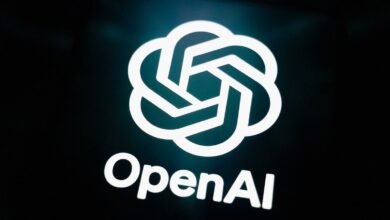Google Rankings vs. LLM Citations: The Data Gap

▼ Summary
– Large language models cite sources differently than Google ranks them, with Perplexity showing the closest alignment to traditional search results.
– Perplexity had 25-30% median domain overlap with Google results, while ChatGPT showed 10-15% overlap and Gemini was inconsistent with minimal overlap.
– Ranking well in Google doesn’t guarantee citations in AI models, as ChatGPT and Gemini rely more on pre-trained knowledge and selective retrieval.
– The study had limitations including dataset imbalance favoring Perplexity and using semantic similarity rather than identical queries for matching.
– Traditional SEO signals matter more for retrieval-based systems like Perplexity, while reasoning-focused models like ChatGPT and Gemini are less influenced by current rankings.
When it comes to finding information online, the methods used by large language models and traditional search engines like Google can differ significantly. A recent analysis by Search Atlas, a company specializing in search engine optimization tools, sheds light on this divergence. The study compared how OpenAI’s ChatGPT, Google’s Gemini, and Perplexity select and cite sources against standard Google search results. By examining 18,377 matched queries, researchers identified a noticeable gap between conventional search visibility and the way AI platforms reference information.
Among the AI tools studied, Perplexity demonstrated the closest alignment with Google search results. This makes sense because Perplexity actively retrieves content from the live web. The data showed a median domain overlap between Perplexity and Google in the range of 25 to 30 percent. At the URL level, the overlap was approximately 20 percent. In total, Perplexity shared 18,549 domains with Google, accounting for about 43 percent of all the domains it cited.
In contrast, ChatGPT and Gemini displayed much more selective citation behaviors. ChatGPT’s median domain overlap with Google hovered between 10 and 15 percent. It shared only 1,503 domains with Google, which represented roughly 21 percent of the domains it cited. Matches at the individual URL level were even lower, typically remaining under 10 percent. Gemini’s behavior was less predictable. Some of its responses showed almost no overlap with Google’s results, while others aligned more closely. Overall, Gemini shared a mere 160 domains with Google. Although these domains made up 28 percent of Gemini’s citations, they represented just 4 percent of the domains appearing in Google’s results.
These findings carry important implications for online visibility. Achieving a high rank in Google does not automatically translate into citations from large language models. The underlying architecture of each system influences how it sources information. Perplexity, with its live web retrieval, tends to mirror traditional search rankings more closely. Websites that perform well in Google are therefore more likely to appear in Perplexity’s responses. On the other hand, ChatGPT and Gemini depend more heavily on pre-trained knowledge and selective retrieval processes. They tend to reference a narrower range of sources and show less correlation with current search rankings.
It is worth noting several limitations of the study. The dataset was heavily weighted toward Perplexity, which accounted for 89 percent of the matched queries. OpenAI represented 8 percent and Gemini just 3 percent. Researchers used semantic similarity scoring to match queries, meaning paired queries conveyed similar information needs without being identical user searches. A threshold of 82 percent similarity was applied using OpenAI’s embedding model. Additionally, the analysis covered a two-month period, offering only a recent snapshot. A longer timeframe would be necessary to determine whether these overlap patterns remain consistent over time.
Looking forward, visibility strategies may need to adapt depending on the AI system. For retrieval-based platforms like Perplexity, traditional SEO factors and overall domain authority are likely to remain important. For reasoning-focused models such as ChatGPT and Gemini, these conventional signals may have a reduced direct impact on which sources are cited in responses.
(Source: Search Engine Journal)





